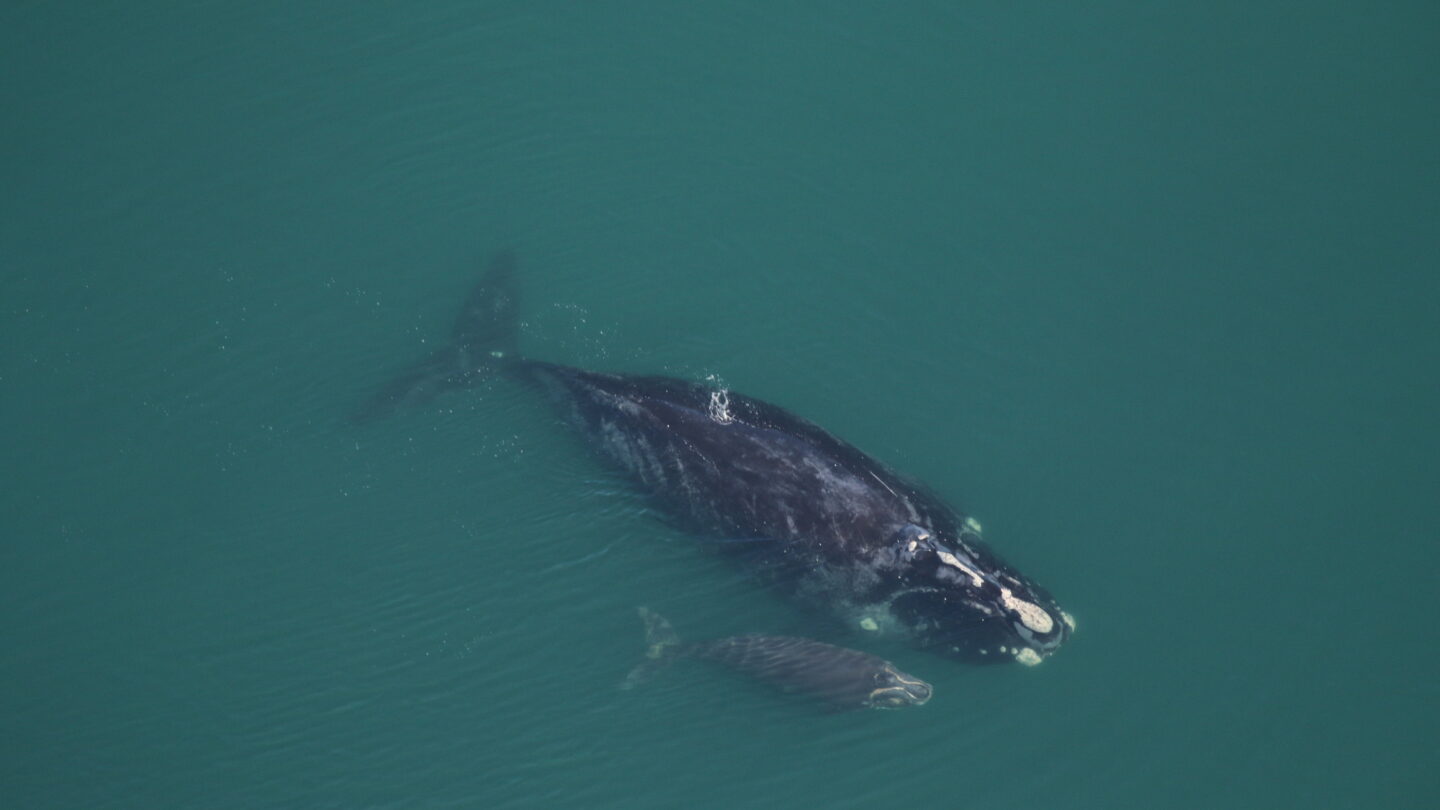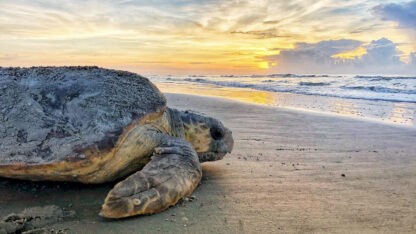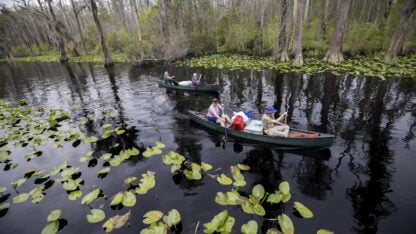Two right whale calves spotted off Georgia coast

Right whale catalog #1208 (“Medusa”) and her calf, the first calf documented during the winter 2022-23 calving season, about 11 nautical miles miles off Ossabaw Island on Dec. 7, 2022. 1208 is about 47 years old (she was first seen in 1981) and this is her seventh documented calf. (Courtesy of the Clearwater Marine Aquarium Research Institute, taken under NOAA permit 20556)
Two North Atlantic right whale calves have been spotted swimming with their moms off Georgia’s coast this week, marking the start to the calving season for the critically endangered species.
On Wednesday, an aerial survey team saw a whale known as Medusa swimming with a calf off St. Catherine’s Sound. It’s Medusa’s seventh documented calf. On Thursday, researchers saw another mother, known as Archipelago, and her new calf off the coast of Little St. Simons Island. This is Archipelago’s third calf.
Fewer than 350 North Atlantic right whales remain, including just over 70 breeding females, so every calf is critical to the survival of the species.
The whales travel from their feeding grounds off New England and Canada to the coasts of Georgia, Florida and the Carolinas to give birth every winter, from about mid-November to April.
According to Department of Natural Resources Wildlife Biologist Clay George, researchers have seen eight adult whales so far this season, seven of them females who’ve had calves before. He called that “encouraging.”
But experts have long said the whales can’t calve their way out of their current crisis.
“We’re basically losing right whales faster than they can replace themselves,” said George. “And that’s not good for any species, much less a critically endangered species.”
The whales have been experiencing what scientists call an “unusual mortality event” since 2017. More than 14% of the population has died or been seriously injured in that time, according to the National Oceanic and Atmospheric Administration (NOAA).
Their leading causes of death are human: the whales get struck by boats and tangled in fishing gear, particularly in the long, vertical lines used to catch lobster and crab.
NOAA has proposed expanding the speed limits designed to protect right whales, but the new rules haven’t been finalized and aren’t expected to be in place this calving season. Advocates are calling for the agency to implement the rules immediately.
NOAA has also proposed a “roadmap” to increasing ropeless fishing, a way of catching lobster and crab without using the lines that can entangle whales.








